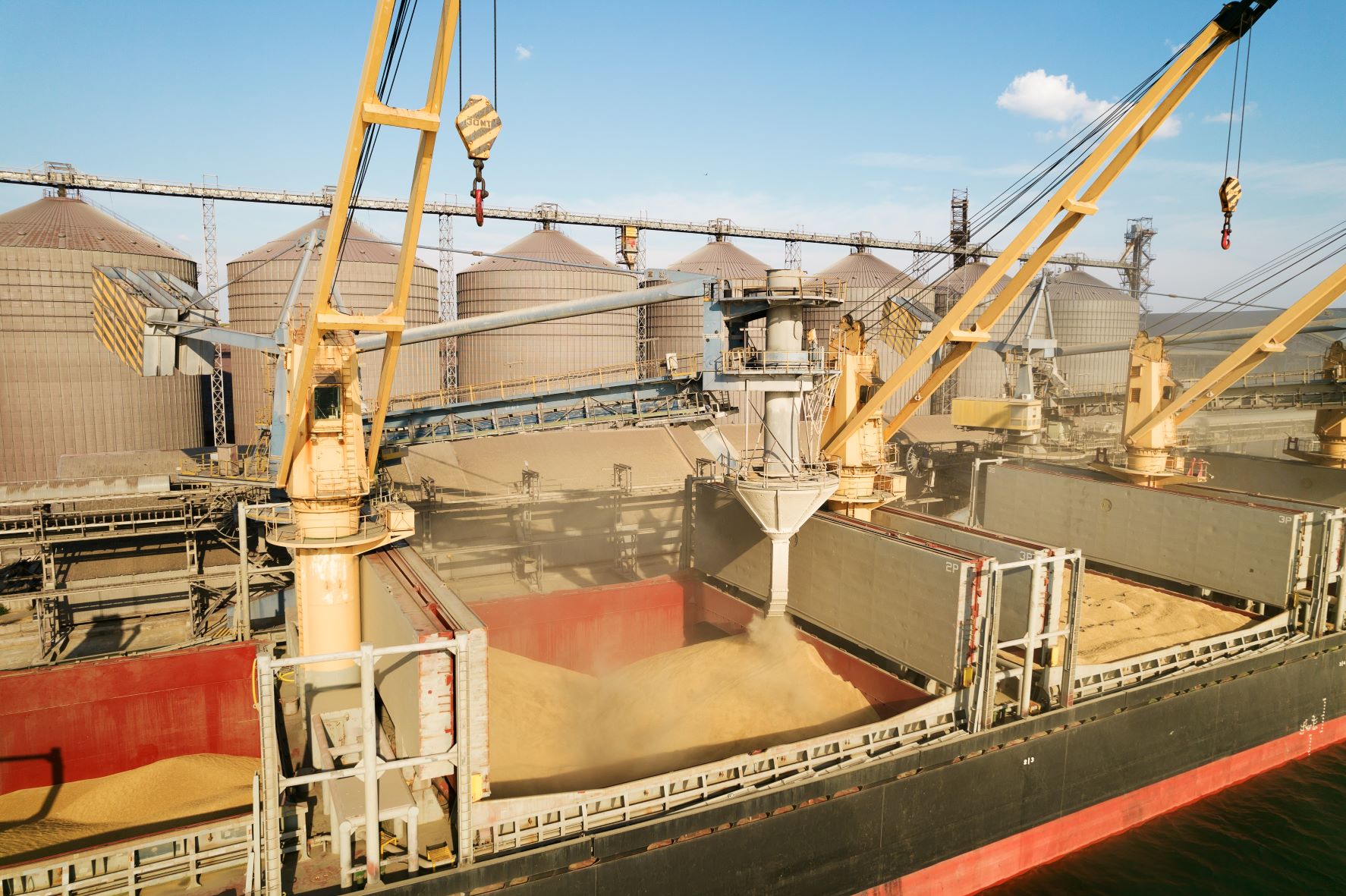
The first grain shipment to leave Ukraine since it was invaded by Russia nearly six months ago departed Odesa early this week after the two countries signed the Black Sea Grain Initiative brokered by Turkey and the UN.
The Sierra-Leone flagged bulk carrier Razoni will carry 26,500 tonnes of corn to Tripoli under a deal that will also enable the shipment of Russian grain, food products and fertilizer. The project, which could reintroduce 23 million tonnes of grain a year to global food markets, is a coordinated attempt to ease pressures on struggling economies.
Vera Songwe, Executive Secretary, United Nations Economic Commission for Africa noted that the increase in food prices driven by the conflict is both a development and a humanitarian issue.
“When the war began, we had a 28% increase in food prices in Latin America and the Caribbean, 23% increase in Asia and 17% in Africa,” she said. “The issue was to reintegrate Ukraine and Russian grain into the markets, and it was encouraging that as the agreement was signed we saw a 4-5% reduction in food prices.”
The agreement, signed on 22 July, creates a safe environment around the ports of Odesa, Chernomosk and Yuzhnhnyi to remain in place for 120 days, with automatic extensions unless otherwise stated by either party. The first movement is a big step, but continued focus on insurance and security arrangements will be critical in assuring the success of the initiative.
Seeking security
The need for extra security measures to enforce the treaty was emphasised just a day after the agreement was signed, when Russian missiles hit the port of Odesa. Russia has claimed that the strikes hit a Ukrainian warship and warehouse containing anti-aircraft missiles. Grain storage at the ports, as well as 26 vessels loaded with grain ready for export, were not damaged.
Vessel movements will be overseen by a Joint Coordination Centre (JCC) in Istanbul, composed of representatives from parties including Ukraine, Turkey, the Russian Federation, and the UN. The JCC will require operators to register vessels, which will then escorted through the humanitarian corridor in the Black Sea and guided through mine-free channels around the Ukrainian ports.
Vessels inbound to Ukrainian ports will be inspected for contraband and weapons near Turkish ports, while UN and Turkish monitors at Ukrainian ports will ensure that only grain and fertilisers are transported out of the country.
According to Martin Griffiths, UN Under-Secretary General for Humanitarian Affairs and Emergency Relief Coordinator, supervision of vessels is an integral element to the deal; unrestricted movement in the Black Sea was unfeasible and clearing mines to allow unguided access to the ports would have taken more than four months.
Working out standard operating procedures under the terms of the agreement, including which parties will supply naval escorts, is an ongoing task. “It’s not just a matter of whether there are ships available, they need to move safely,” said Griffiths. “Without those procedures in place we cannot manage a safe passage of vessels.”
Ahead of the departure of the Razoni on Monday, the JCC reported that it had agreed specific coordinates and restrictions of the Safe Humanitarian Maritime Corridor and communicated the details in accordance with international navigation procedures. Standardised procedures are yet to be finalised.
In a statement released by ICS, it stressed that “the safety of seafarers and port workers must remain the priority”.
Commercially viable
The IMO has played a key role in UN efforts to secure the agreement, in particular coordinating with commercial operators. Meetings with operators ahead of the signing confirmed that the agreements terms were sufficient to assure a commercially viable trade. Crucial to this is the availability of insurance for vessels and cargos using the corridor.
On 26 July the Lloyds of London Joint War Committee invited underwriters to indicate whether they would support an initiative either through a dedicated market facility or other means to provide insurance for grain and food cargo intended for shipment from Ukraine. Three days later, insurance broker Ascot announced it was leading a £50 million facility placed by Marsh. Patrick Tiernan, Chief of Markets at Lloyd’s, said: “The recovery of grain supplies is vital to addressing global food insecurity and market uncertainty. The facility is of paramount importance and will add essential protections to the deal brokered by the UN last week.” The JWC noted that it is not intended to prevent other offers of insurance should underwriters decide to offer separate solutions as well. According to reports, other underwriters have already shown interest in providing similar facilities.
Notably, there is market capacity for insurance for hull and war risks and, for those vessels alongside, cover should be available under existing terms. However, if there is an issue, shipowners are advised to discuss with their broker who will be able to source an alternative insurer.
The cost of insurance is another element of concern. Increased risk has driven up premiums on cargo and vessel insurance, contributing to high transportation costs that supplement grain scarcity and lower liquidity as factors making food less affordable in many countries.
Since the initiative was signed there has been a drop in the cost of insurance relative to total transport costs from 5% to around 2%, Songwe reported. But price of cover remains significantly higher than before the war, when insurance represented around 0.025% of transport costs. It is thought underwriters will address the initiative with pragmatism in mind.
Opening a grain corridor for vessels to trade safely and with insurance under the current circumstances in Ukraine is by any marker, a remarkable achievement. Insurance against losses and assurances of safety for vessels, cargo and crew will be critical to ensuring its effective operation.
